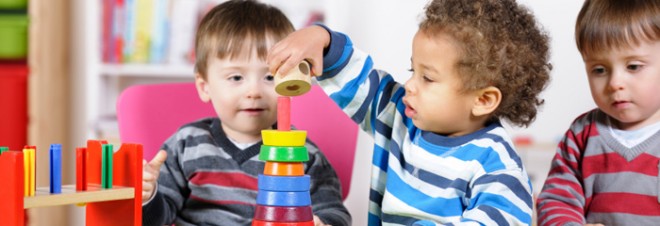Babies do all kinds of things pretty soon after birth, but it can be difficult to know which actions are voluntary and which are involuntary. One of the things that you need to know about early child development in order to better understand your child’s needs is that most of the time she doesn’t know what she is doing!

Reflexes
Babies take some time to learn about themselves and their place in the world, but a newborn comes well equipped for the early days of survival by having a series of reflexes that help it coordinate eating, sleeping, and other necessary processes at this unwieldy stage. The most common and prominent reflexes include:
- Blinking: This reflex will obviously stay with your baby for life – could you imagine if you had to teach your baby how to blink?
- Grasping: You’re familiar with that precious moment when a newborn grabs your finger with his or her tiny palm, but this will not become an intentional action until 3 to 4 months of age
- Rooting: This reflex is essential for the early days of nursing, and is when your baby will turn her head and open her mouth when you touch her cheek, putting her in the perfect position to start to nurse. Between 3 and 6 months this gets replaced by intentional feeding.
- Stepping: Ever noticed that when you hold a new baby up he will start “stepping” with his legs? While this seems like it may be related to the later development of walking, this action will actual disappear by around 2 months of age.
- Sucking: Put something in the baby’s mouth and the baby will suck it. This eventually – as with all other processes – becomes voluntary, but in the early stages is meant to ensure proper intake of food (and survival!)
- Moro: This is a fascinating reflex, but one that you may never actually hope to see. Up until about 6 months, if your baby is dropped or startled by a loud noise, he will throw out his arms and arch his back, and then quickly bring his arms back together. Researchers love to study the Moro reflex for clues about evolutionary child development.
Senses
While you can easily differentiate between a taste and a touch, your new baby is only just learning that he has hands and a mouth! Early on, he is able to hear sounds, and fascinatingly, research has shown that babies will show preference towards sounds in their native language (likely related to exposure in the womb). Your baby’s vision takes a while to settle in, and he won’t see color until about 2 or 3 months. You may notice that he has a preference for movement, and he will react to your face. While your baby may not be able to give them meaning, he is also tasting, touching, and smelling things.
Early development is a lot of work for a parent, but by better understanding the tools your baby comes equipped with and the tools you can help teach him, you can make sure he is on the right path to development.
